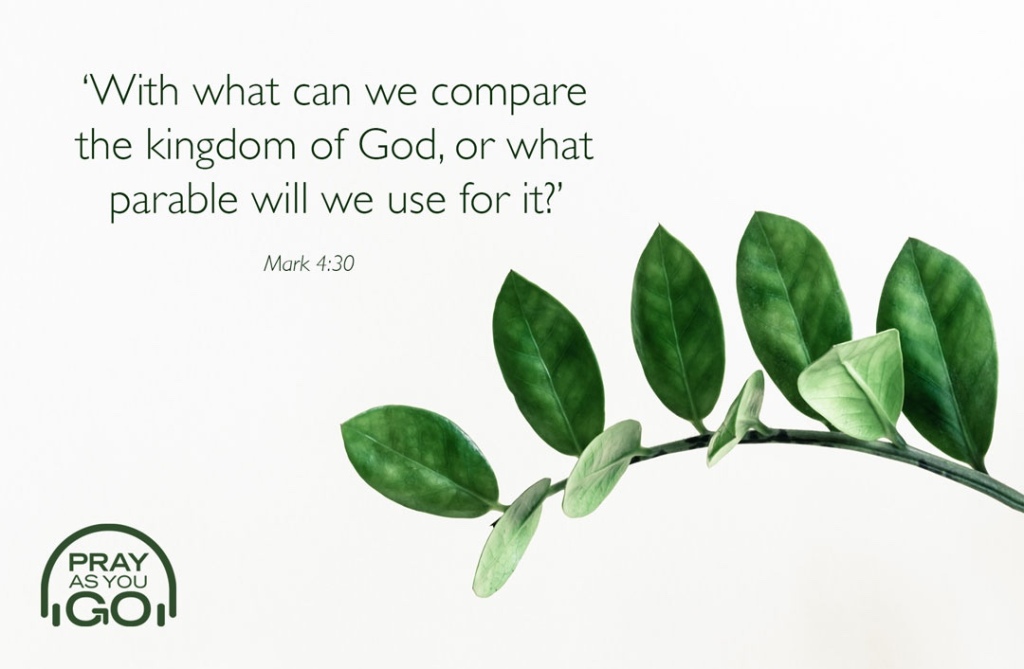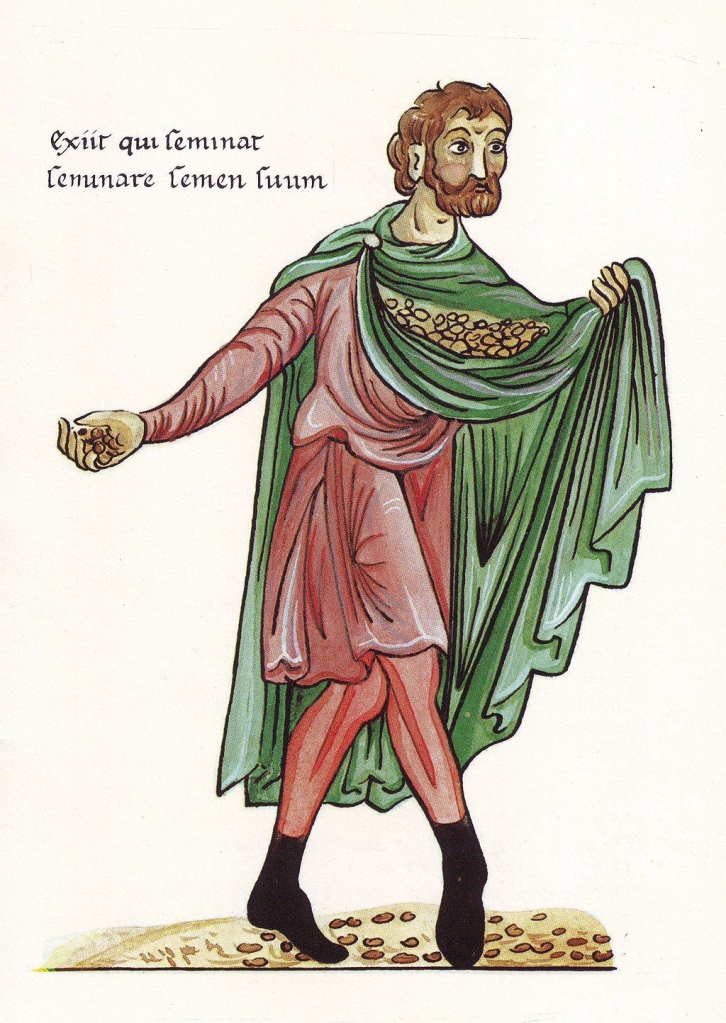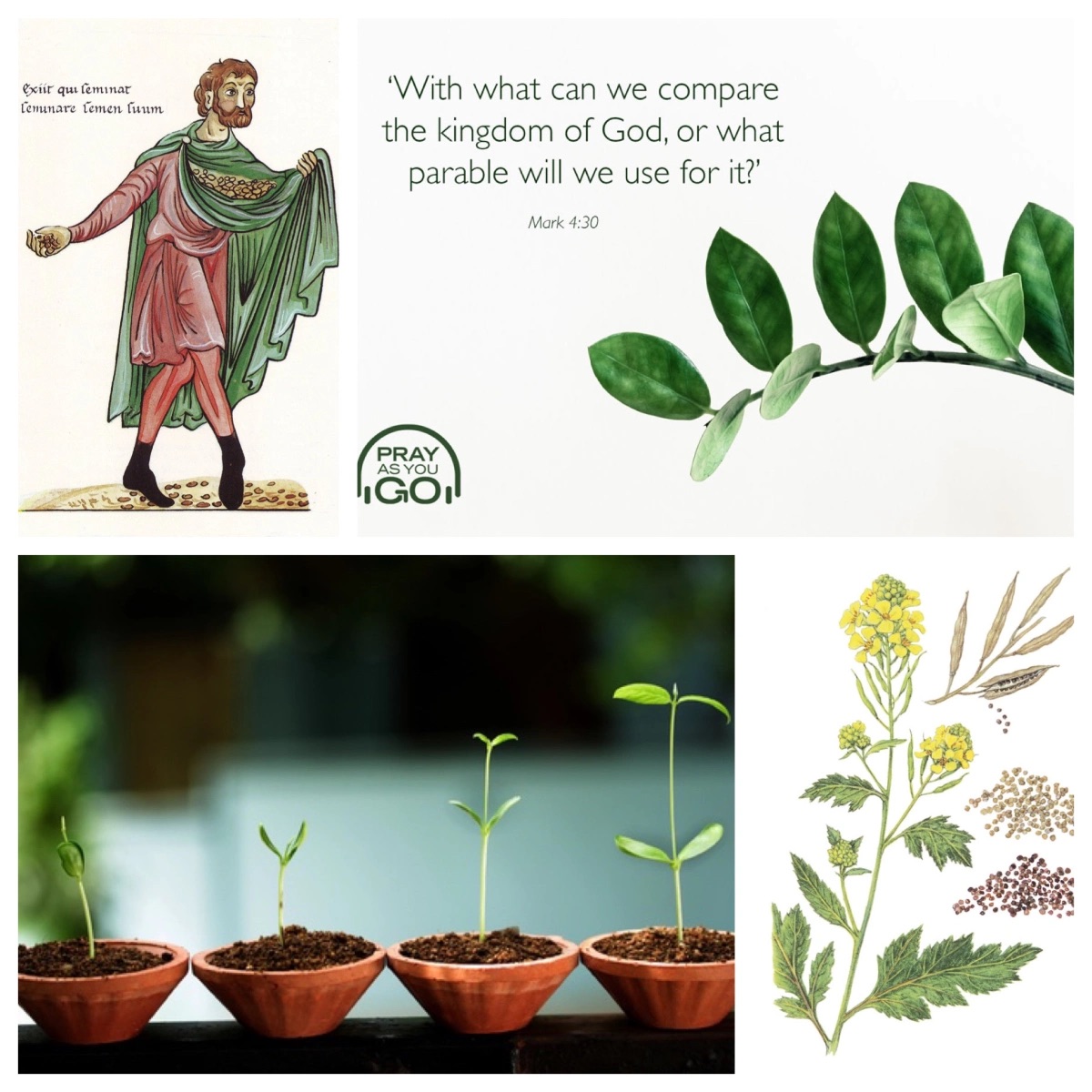In following the Revised Common Lectionary, we’ve just returned to passages from the beginning of the good news of Jesus, chosen one, after many months away in other gospel accounts of Jesus and his activity. See https://johntsquires.com/2021/03/19/1-where-has-mark-gone/
The work we know as “the Gospel according to Mark” is the shortest and earliest of the extant accounts that we have. It is a story-telling narrative, moving from one incident to the next in short order. It’s a dramatic and vivid account. See https://johntsquires.com/2021/03/20/2-mark-collector-of-stories-author-of-the-passion-narrative/
It’s fitting, therefore, that we hear today two of the really short stories that Jesus told. We know these short stories as parables. There is the parable of seed, scattered in the ground, that grows of its own accord (Mark 4:26–29). Then there’s the parable of the smallest seed that grows to a large shrub (4:30–32). These two short stories each reveal something about the way that God wants things to be, the kingdom of God. Such parables were typical of the way that Jesus taught his followers (4:33–34).

Parables were quite widespread in the society of Jesus’ day. They were evocative and effective means for telling stories. The most common means of entertainment in the ancient world was telling stories. This was done by word of mouth, from one person to another, or in small groups gathered in market places, courtyards or houses. Education also relied on the voice. Children were taught by word of mouth. Adults also learned by listening, discussing, debating.
Written materials were costly and only a small percentage of the population was literate. The natural tendency to tell stories was widely accepted in Jewish society, so that the most familiar pattern was that learning took place through the passing on of stories. So oral story telling was commonplace in the synagogues where Jews gathered for worship and instruction.
We can see the dominance of the oral medium most clearly in the literature which tells about the rabbis of Judaism. The story was the foundational building block for all the rabbis’ teaching activities. Beyond Judaism, we see it in the popularity of written biographies, romances, histories and adventure stories, throughout the ancient world.
Indeed, a second century Christian (Papias, the Bishop of Hierapolis) is reported as having stated that stories spoken by teachers are to be preferred as more reliable than written works (such as the Gospels)—an attitude that sounds incredible to our modern ears! See https://johntsquires.com/2020/10/15/what-do-we-know-about-who-wrote-the-new-testament-gospels-2/

A parable is an important type of story-telling. A parable is a story told in a specific way to make a single clear point. Parables are found in Jewish literature; the most famous examples in the Hebrew Bible are Samuel’s parable comparing David with a callous rich herdsman in 2 Samuel 12 and the prophet’s parable comparing Israel with an unfruitful vineyard in Isaiah 5.
Rabbis at the time of Jesus, and later, have used parables to make their point in their teachings. The Hebrew word for this form was mashal, a word meaning “to be like” or “a comparison”. Parables were told to make a point about something that may not be easily understood, by drawing a comparison with something else that was well-known or easily understood.
The mashal also opens up the possibility of a more developed form of comparison, the similitude, of which the best example is Nathan’s parable to David concerning the stolen lamb (2 Sam 12:1–4). This form flourishes in later Judaism, both in rabbinic literature, and in the Gospel accounts of Jesus’ parables (“the kingdom of heaven is like…”). In fact, the parables told by Jesus follow the patterns and customs of the rabbinic mashal.

Both the parable of the seed growing in secret (4:26–29) and the parable of the mustard seed (4:30–32) are examples of a simple parable with a short plot development. The first parable moves quickly to the key point, when the farmer “goes in with the sickle, for the harvest has come”.
Judgement is integral to the message that Jesus preached. His vision of the kingdom involves standards that God imposes and that God judges. The seeds growing in secret will face this reckoning at the harvest. Our lives of discipleship will be measured by the righteous-justice of God that Jesus proclaimed. The harvest was an image of divine judgement for some of the prophets (Hosea 6:1–11, 8:1–10; Joel 3:9–16; and see Ps 126:1–6; Prov 22:8).
The second parable has a similar focus on the climax: “it becomes the greatest of shrubs”. The mustard seed grown into a shrub with branches in which the birds nest, indicates the inclusivity that is offered in the kingdom. It seems that Jesus May have been referencing the oracle of Ezekiel, about a sprig of cedar that grows so big that “under the shade of its branches birds of every sort will nest” (Ezek 17:22–24).

Measured by the standards of the righteous-justice of God, the kingdom is open to those who adhere to this measure, regardless of their status or origins. This was the message of Jesus, offering hope to all who followed in his way.
This pair of parables contain two key elements of the message of Jesus: justice, and inclusivity. We find these themes in the stories told and the guidance taught by Jesus throughout his ministry. The parables convey these messages in short, sharp, dramatic style.

